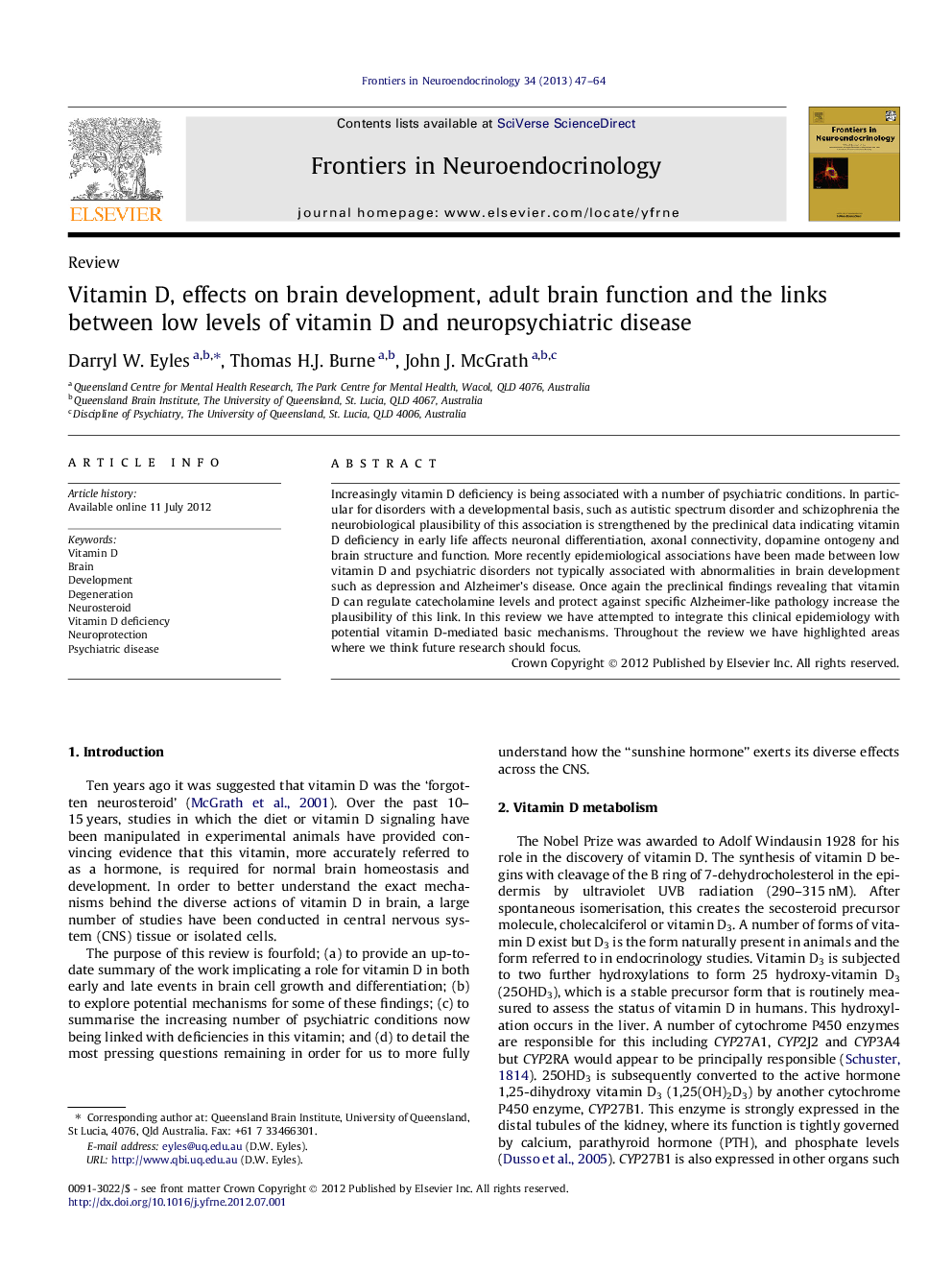| Article ID | Journal | Published Year | Pages | File Type |
|---|---|---|---|---|
| 2799387 | Frontiers in Neuroendocrinology | 2013 | 18 Pages |
Increasingly vitamin D deficiency is being associated with a number of psychiatric conditions. In particular for disorders with a developmental basis, such as autistic spectrum disorder and schizophrenia the neurobiological plausibility of this association is strengthened by the preclinical data indicating vitamin D deficiency in early life affects neuronal differentiation, axonal connectivity, dopamine ontogeny and brain structure and function. More recently epidemiological associations have been made between low vitamin D and psychiatric disorders not typically associated with abnormalities in brain development such as depression and Alzheimer’s disease. Once again the preclinical findings revealing that vitamin D can regulate catecholamine levels and protect against specific Alzheimer-like pathology increase the plausibility of this link. In this review we have attempted to integrate this clinical epidemiology with potential vitamin D-mediated basic mechanisms. Throughout the review we have highlighted areas where we think future research should focus.
► Impairments in vitamin D signaling adversely affect brain development. ► Vitamin D is closely associated with dopaminergic neurotransmission. ► Low levels of Vitamin D are associated with various psychiatric conditions. ► It is time for intervention studies with Vitamin D in psychiatric diseases?
